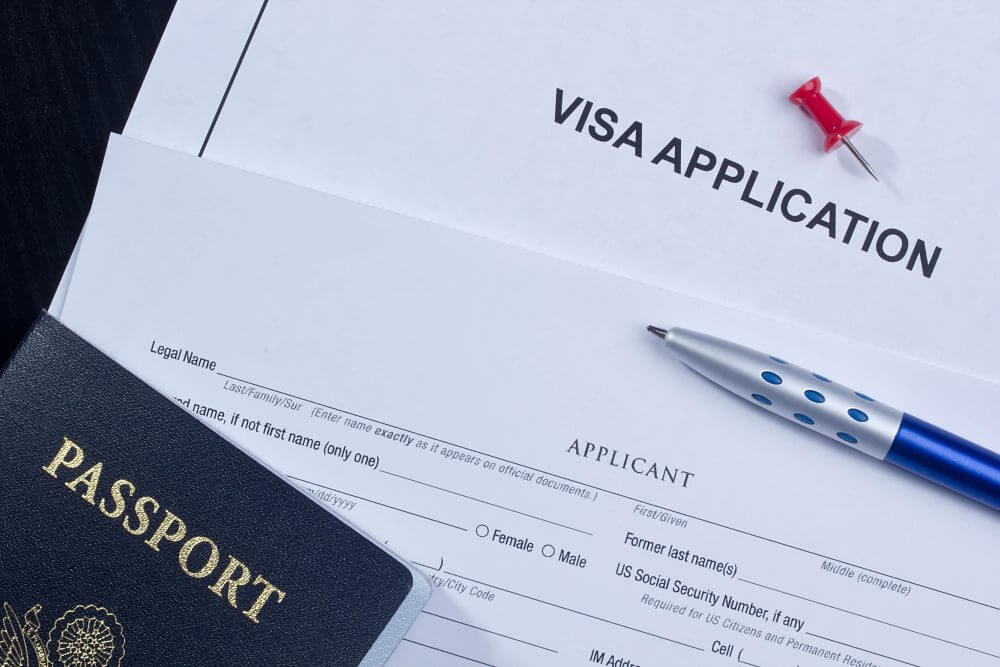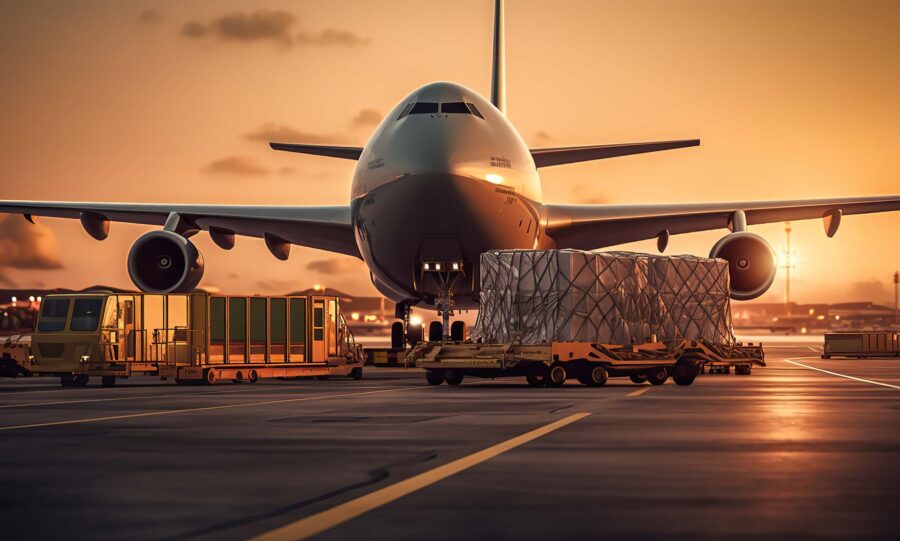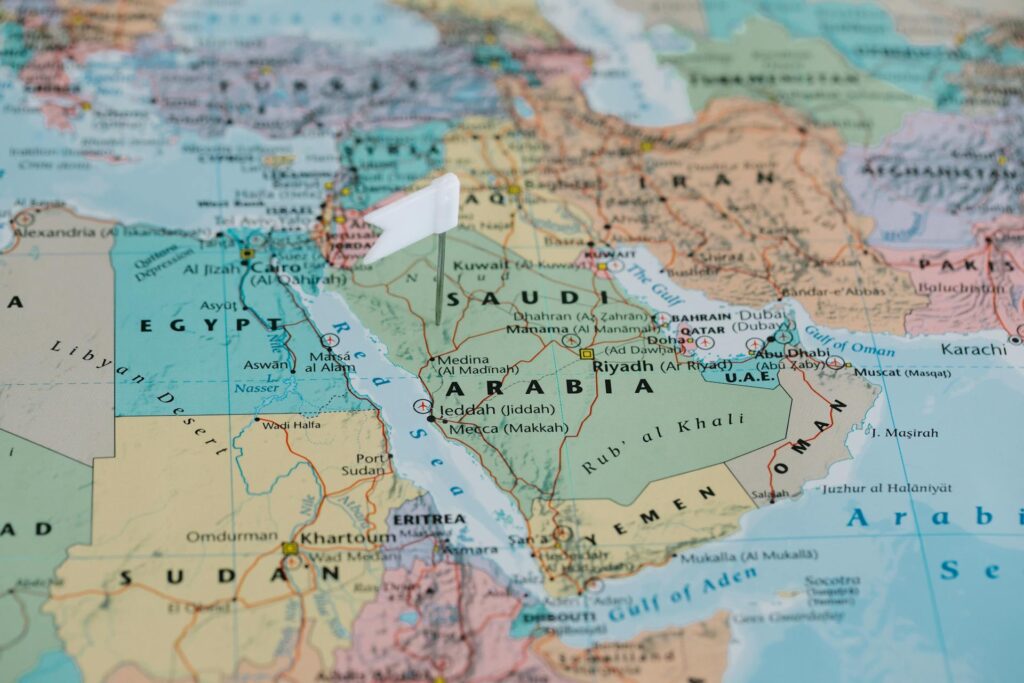Moving to a foreign land is often a seismic shift in a person’s life. Suddenly, a person is taken away from all he knew and thrown into a different world where people act or speak strangely. It sounds (and often is) scary, but there are things to know about how to move to another country that will, in a way, put it all in a frame. Breaking it down into steps will make the whole process a lot less terrifying and much more manageable.


We did just that for you. From the moment you decide to move overseas onwards, we covered all the bases. If you’ve ever wondered, “can a US citizen live in another country,” the answer is positive. Wherever you decide to go, however, some things don’t change.
How to Move to Another Country and Start Over for the Right Reasons
The choice of a foreign land to relocate to depends on your reasons to move in the first place. It can happen that you have little say in the matter, which is a common thing if your US employer decides to transfer you overseas. In that case, your status and salary should be among the first relocation questions to ask the employer. On the plus side of things, you probably won’t have to worry about the administrative part of things too much, since that should be the employer’s responsibility. In all other cases, it all falls on your shoulders.
What happens if you want to go by yourself and seek your fortune? Can you move to another country without a job? Generally speaking, yes, but keep in mind that different countries regulate immigration differently and that not a small number of them require that would-be immigrants have a contract with a local company.
The next among the most common reasons for moving abroad is education. Many young Americans opt for moving to Germany, France, or Great Britain after high school to study at some of the most prestigious universities in the world.
On the other end of the age spectrum are senior citizens who wish to spend their retirement somewhere else. They are often moving to Ireland, Portugal, or some other place on the list of best places to retire in Europe or go to Singapore in Asia.
Of course, some people just want a change of scenery, some are moving to another country for love, and some may have fallen in love with a foreign land they saw on a postcard. Whatever the reasons, neighbors top the list of countries that most Americans live in after leaving the US:
- Mexico
- Canada
- India
- Philippines
- Israel
All in all, about nine million Americans live abroad.
Preparatory Steps for Moving Internationally
Before you contact international movers to handle the technical side of your relocation abroad, you should, so to say, bring your house in order. Both the existing and the future one. This part isn’t much different from long-distance relocations within the US, except for foreign regulations you’ll have to take into account.
International Moving Requires Proper Accommodation and a Job
The worst possible outcome is to land in a foreign land without accommodation to go to for the night. If at all possible, you should have one ready when you arrive. It is great if you’re able to buy a house right away, but you’ll more likely have to rent.
Most countries don’t impose restrictions on foreigners owning or renting real estate, but some require conditions that have nothing to do with money. For example, to rent a home in Japan, you need to have a Japanese citizen as a guarantor. So research the local regulations before you begin house-hunting.
It’s similar to jobs. No state in the world bans foreigners from working, but certain requirements are in place. In many countries, the company that wishes to hire you has to prove to the authorities that what you bring to the workplace is something that no local resident can offer. There’s another point for research for you.
Declutter and Earn Some Money for Good Shipping Overseas Services
Deciding what to pack when moving abroad is an essential step in many ways. The most significant segment is the price of relocation. Fewer things shipped mean a lower price for most shipping companies. Sunset is one such company, although our international movers would never force you to get rid of items you love. We’d offer storage services instead, and add some useful relocation insurance on top.
Even if there wasn’t such an incentive, it is recommended to downsize and take with you only the things that matter. It’s more likely than not that it would be cheaper to buy a sofa once you arrive at your destination than shipping it from the US. It would be best to donate unwanted items and even sell what you can and improve your moving budget.
How Much Does It Cost to Move to Another Country? Not a Lot If You Hire a Reliable Overseas Moving Company
Finding and booking movers you can trust is essential. Most relocation companies will offer you shipping by sea and by air. Unsurprisingly, the air option is much faster but also much more expensive. You’ll want the company that offers overseas vehicle shipping as well. So call several shippers and compare their quotes before you decide who’ll handle your belongings.
It may mean a bit higher expenses, but assuming that you’re moving across the world, it would be smart to pay for professional packing services to secure your belongings in the best possible way. The stuff you don’t wish to take with you but wish to keep in possession can go to storage units, which Sunset International Shipping has in abundance.
The Key to Efficiently Moving to Another Country – Round Up the Paperwork
When moving overseas, all documents needed to travel abroad must be in order. The most essential one is a passport that has to be valid at the moment of border crossing. Depending on the state, it sometimes has to be valid for a certain period after you enter it.
The next one on the list is the visa. Keep in mind that even if you don’t need a permit for a short stay in some states, one is always required if you plan to live and work there.
You should also take with you a birth certificate, medical and school records, social security card and tax records, and eventual marriage or divorce certificate. Those papers should travel with you to a new land, and not with your stuff.
Common Types of Visas When You Want to Move to Another Country
The kind of visa you will require mostly depends on the reason for relocation. Students obtain student visas, and those who come to work require a working permit. Work permits can take many forms, depending on your skills and whether you plan to stay temporarily or long-term. If your spouse is to join you, that requires yet another visa type. On the far end of the spectrum are visas given to refugees and asylum seekers.
The bottom line is that every state has its own rules and conditions for granting visas to immigrants, and you should thoroughly research those before applying.


What Status You Can Have When Moving Internationally
Working visas are usually granted for a certain period of time. After that period is over, they have to be renewed. But after a while, you’ll be able to apply for status that would allow you to remain in your new land indefinitely.
Permanent Residency
Permanent residency is the status granted to foreigners after they’ve spent a specified amount of years in the country. Every government defines the rules on that one, and can (and almost always does) sets other conditions for obtaining permanent residency.
Those can be various things, like not leaving the country’s territory, working without interruption, or not committing a crime. These days, more and more popular are so-called “golden visas” – permanent residency permits granted to those who invest a set amount of money in the state or buy real estate.
Once you become a permanent resident, you’ll obtain most of the rights the locals have. But you still won’t have political rights there: you won’t be able to vote, hold public office, or even have a job in the public sector. All that is reserved for citizens.
Citizenship and Dual Citizenship
After a certain period of permanent residence, you can apply for full citizenship. That period is, to give some examples, five years in New Zealand, eight years in Germany, and ten years in Italy. There are other conditions attached, too. In the UK you have to prove that you have “good character” and pass the test. In many countries, a criminal record is a deal-breaker.
No state in the world prohibits foreigners from becoming citizens, but some make it extremely difficult. Saudi Arabia and other Arab countries in the Persian Gulf are examples of such practices, where even a marriage to a national doesn’t guarantee a passport.
Some countries allow their citizens to hold citizenship of another state. Dual citizenship has many perks, like having two passports and full rights in two countries. But Americans with dual citizenship have one serious downside. IRS taxes US citizens wherever they live unless there is a treaty in place that prevents double taxation. The existence of such an agreement between the US and your chosen destination should definitely be on your research checklist.


Learn About the Destination Before International Moving
Before relocating somewhere, you should dedicate yourself to learning about the place. But not only superficial things. Of course, if you’re moving with kids, you’ll undoubtedly wish to go to one of the best places to live abroad with family, and so on, but there’s much more to every foreign land than meets the eye.
Language Issues Are Common When Moving Abroad
Many Americans choose to relocate to English-speaking countries such as Ireland, Australia, or New Zealand. It’s easy to see why – no worrying about breaking the language barrier, which makes settling in that much easier. But there is more than a bit of adventure in learning new (and maybe even exotic) stuff like foreign languages. With a few tips for learning a new language, you’ll be ready to roll in no time.
Cultural Sensitivities of a New Community
In every community in the world, there are some dos and don’ts, and you should know what makes your new neighbors tick. While considered rude in the west, slurping in Japan means that you’re enjoying the meal. Never give a clock or shoes to a Chinese, since they symbolize bad luck. Unlike most other folks, Danes love to hang out at the cemeteries.
There are countless moments like these in every culture on Earth. Learn as much as you can before relocation, and avoid unpleasant situations if you unknowingly offend someone. Even a simple thumbs-up can get you into trouble in Turkey, for example.
Climate Can Affect Your Packing
Last but not least, find out about the local climate. You won’t take clothes for cold weather and blankets to Kuwait or Australia, but you would if you’re relocating to Iceland or Russia. Knowing the ins and outs of the weather can be of great help in deciding what to pack and what not.


Finances, Work, and Cost of Living
The financial part of the relocation begins with a well-made and responsible moving budget, but it doesn’t end there. You’ll have to do your homework on your destination’s banking system, taxes, currency exchange rates, and procedures required for foreigners to open bank accounts. A bank account is an important item in the process of settling in. That’s where you’ll be getting your salary.
When it comes to work, be ready for the local approach. If working in Europe as an American, you’ll most likely find yourself in a much more relaxed workplace atmosphere. More extended maternity leave is a norm in much of Europe, as well. On the other hand, workplace structures and work ethics in Japan or South Korea are even more rigid than in the US.
But where you have to do the most thorough research is the cost of living in the destination. When compared with your salary, it will determine what kind of life you’ll be able to live. Whether you’ll dine out every day or have to reserve that for special occasions. Stuff like that. The good news is that most of the countries are affordable compared to the US, except in a few capitals, like London.
Housing Costs Could Surprise You While Moving Internationally
Wherever you decide to go, you can be sure that the most substantial portion of your monthly paycheck will be spent on housing, just like in the United States. So you’ll have to decide on a neighborhood and whether you want to buy a home or rent it. Internet and expat friends might prove invaluable in this instance. Of course, it would be best to make a field trip and travel to the chosen city before the actual relocation, but that often isn’t possible.
Transportation Is a Valuable Asset to Consider
Another essential aspect to consider when moving overseas is transportation in and around the new city. Knowing how the public transportation system works, and how much it costs to use it, will tell you a lot about the eventual need for shipping a car overseas. In that sense, you can also decide whether you want to pay an international moving company for auto transport.
Whether you like driving or not, it pays off to have your own vehicle, since it allows you greater freedom of movement. The downsides, especially in large cities, can be higher fuel prices and difficulty in finding a parking spot. And traffic jams, yes. But if you lived in any US city, you should be fine.
There is also a matter of documentation. Besides paperwork for car import, you’ll probably have to take a local driving license.
In case you’re going to Europe and like to travel, you’re in for a treat. European Union countries, except Ireland, have removed border checks between themselves. The continent is also crisscrossed with low-cost airlines where plane tickets cost just a couple of dollars (or euros, in terms of European common currency).


Healthcare and Education
Another essential aspect of the quality of life in your destination nation is healthcare. We all know how things roll in the US in that department – extremely expensive and at the mercy of private insurance companies. The only ones free of that system are those on Medicare and Medicaid programs, which is to say retirees and the poorest.
Luckily, most of the countries outside of the US have, in one way or another, a publicly funded health system that is free for citizens, and sometimes even for residents and foreigners, at the delivery point. That usually means paying a certain amount every month to the public healthcare fund, but at least you can be sure that some illness along the way won’t cost you thousands of dollars or more.
At what point you become eligible for free public healthcare depends on the nation. In Canada, for example, you have to be a resident for three months, and in Japan, that period is one year.
Unless you’re a student, education opportunities probably aren’t high on your list of must-haves. Until the time you have kids, that is. Public schools across the world are usually free to attend, but the quality of education is much higher than in their American counterparts. So check out schools in the neighborhoods around the town. For those who want and can afford it, as with healthcare, there are private options, too.


How Do You Move to Another Country? Prepare Yourself Mentally
What often comes the hardest for people relocating overseas is the feeling of jumping into the unknown. One huge benefit of thorough research is that it might give you a sense of knowledge about what you’re getting into. That’s not to say there won’t be moving stress because that probably isn’t going to happen. What it will do is give you an idea of how to live in another country, which you can build up later.
Settling in is never altogether easy, but there are ways to ease the process. Get in touch with existing expat communities before you move, so you can have someone to talk to and ask for help from day one. Familiar faces can help, too, even if it’s just via Skype or some similar way of how to keep in touch with friends and family back home. After you’ve spent much quality time with them before the move, that is.


Now You Know How to Move to Another Country Permanently, Be it Spain or Germany, or South Korea
Overseas relocation is a demanding process, both physically and mentally. There’s no denying that. But do things systematically, and everything will go way more smoothly.
From the moment you decide to relocate and gather boxes and moving supplies, to the time you start going out and meeting neighbors and discovering local joints, being carefully organized is the best you can do. And tons of research, including which overseas shipping company to hire. We recommend calling Sunset International Shipping to get your affairs in order and get the best experience from moving overseas.
Don’t underestimate any detail you run across. It may be that seemingly insignificant piece of information shows to the folks in a new land that you cared enough to learn and respect their culture and customs. And the respect of the locals can take you a long way.
Frequently Asked Questions About How to Move to Another Country
The requirements for moving to another country vary depending on the country and the purpose of your move. In general, you will need a valid passport, a visa or residency permit, and possibly a work permit or other documentation depending on the nature of your stay.
You may also need to provide evidence of financial stability, health insurance, and other forms of documentation depending on the country’s immigration policies. It’s important to research the specific requirements for the country you plan to move to well in advance and to allow plenty of time to gather and prepare the necessary documents.
To obtain a visa, you will typically need to apply through the country’s embassy or consulate and provide the required documentation, such as a passport, proof of financial stability, and any necessary medical or criminal background checks.
The specific requirements and application process will vary depending on the country and the purpose of your move, such as work, study, or family sponsorship. Research the visa requirements well in advance of your planned move and allow plenty of time to complete the application process.
The specific documents you will need to gather before moving to another country will depend on the country and the purpose of your move. In general, you will need a valid passport, a visa or residency permit, and any necessary medical or criminal background checks.
You may also need to provide proof of financial stability, such as bank statements or employment contracts, and documentation related to your planned activities in the country, such as enrollment in a university or a job offer.
To prepare for a move, you can start by researching the local rental market and transportation options, and working with a relocation service or local real estate agent if needed. It’s important to consider the costs and logistics of shipping your belongings and to ensure that you comply with all customs and immigration regulations related to the importation of personal goods. Additionally, expat groups or online communities could provide advice and support.
The best ways to learn a new language before moving to another country include taking formal language classes, using language-learning resources such as books, apps, and podcasts, and practicing speaking with native speakers. It’s also important to immerse yourself in the language as much as possible by watching TV shows or movies, reading books, and listening to music in the target language. Taking advantage of language exchange programs or finding a language tutor can provide valuable opportunities to practice and improve your language skills.
To find a job in a foreign country, you can start by researching the job market, applying for jobs online, networking with professionals in your field, and considering working with recruitment agencies or job placement services. It’s also important to research visa and work permit requirements and ensure that you meet the qualifications for the job you’re applying for.
The healthcare options in the country you are moving to will depend on the country’s healthcare system and your personal circumstances. Some countries may offer a public healthcare system, while others may require private health insurance. It’s important to research the healthcare options in advance of your move and to ensure that you have adequate coverage for any pre-existing conditions or medical needs. Seek advice from local expat groups or healthcare professionals to understand the specifics of the healthcare system and how to access care.
The cultural differences to consider when moving to another country may include differences in language, customs, social norms, and traditions. It’s important to be respectful and open-minded toward the local culture and to be willing to adapt and adjust your behavior as needed.
Researching the local culture in advance and seeking out opportunities to participate in cultural events or activities can help you better understand and appreciate the local way of life. Building relationships with locals and seeking advice from expat groups or a cultural mentor can provide valuable insights and support as you navigate cultural differences.
To manage your finances when moving to another country, you can start by researching the local currency, banking system, and tax laws, and by opening a local bank account as soon as possible. You must plan for the costs associated with the move, such as shipping and relocation expenses, and to create a budget for your ongoing expenses. It may be helpful to work with a financial advisor or tax professional specializing in international financial planning to ensure that you comply with all necessary regulations and optimize your financial situation.
There are several resources available to help with the transition of moving to another country, including expat communities, online forums, and social media groups, as well as local relocation services and international organizations. These resources can provide information and support for a range of needs, including finding housing, navigating local laws and customs, managing finances, and adjusting to cultural differences.









